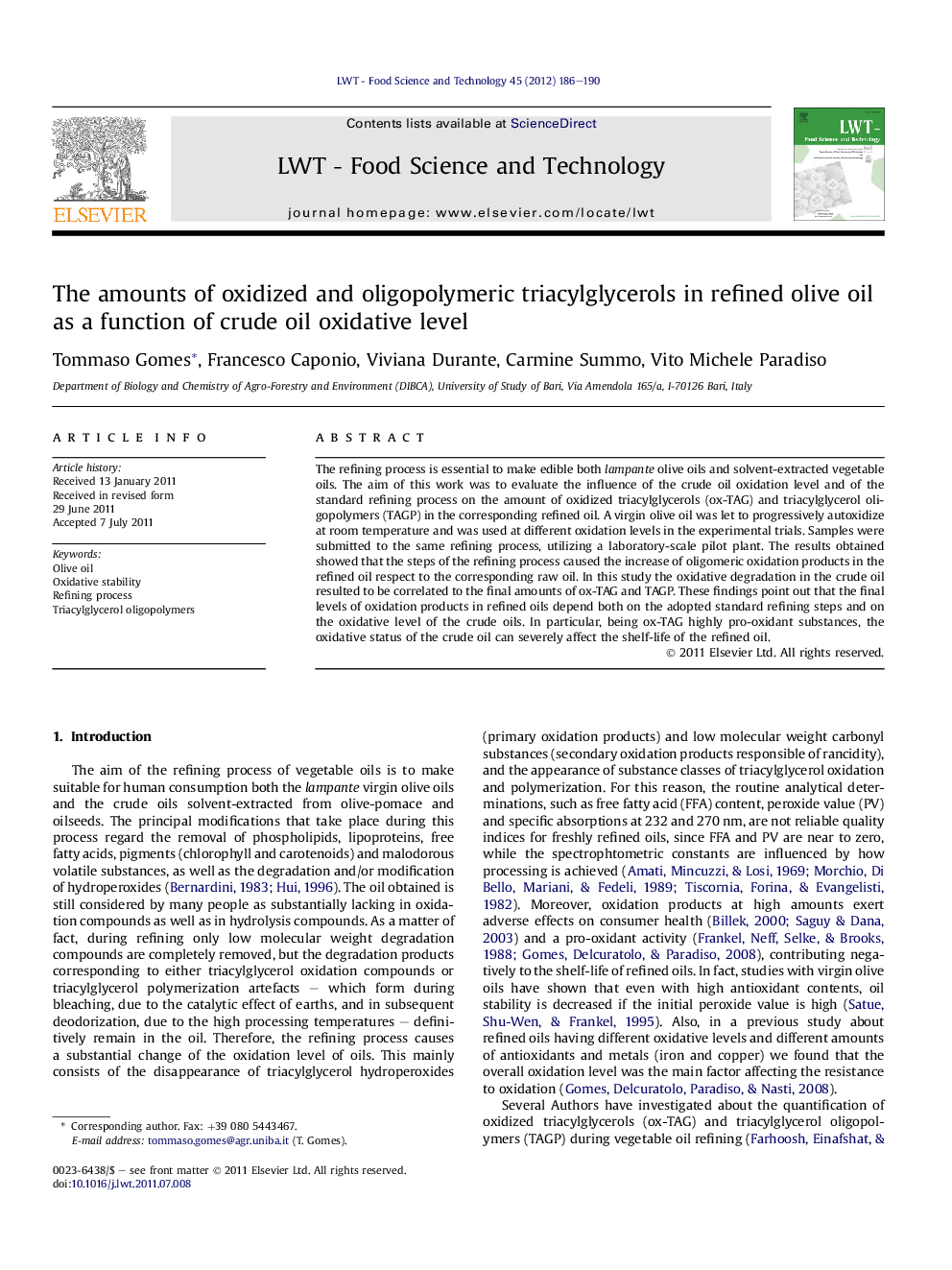| Article ID | Journal | Published Year | Pages | File Type |
|---|---|---|---|---|
| 6405645 | LWT - Food Science and Technology | 2012 | 5 Pages |
The refining process is essential to make edible both lampante olive oils and solvent-extracted vegetable oils. The aim of this work was to evaluate the influence of the crude oil oxidation level and of the standard refining process on the amount of oxidized triacylglycerols (ox-TAG) and triacylglycerol oligopolymers (TAGP) in the corresponding refined oil. A virgin olive oil was let to progressively autoxidize at room temperature and was used at different oxidation levels in the experimental trials. Samples were submitted to the same refining process, utilizing a laboratory-scale pilot plant. The results obtained showed that the steps of the refining process caused the increase of oligomeric oxidation products in the refined oil respect to the corresponding raw oil. In this study the oxidative degradation in the crude oil resulted to be correlated to the final amounts of ox-TAG and TAGP. These findings point out that the final levels of oxidation products in refined oils depend both on the adopted standard refining steps and on the oxidative level of the crude oils. In particular, being ox-TAG highly pro-oxidant substances, the oxidative status of the crude oil can severely affect the shelf-life of the refined oil.
⺠The oxidation level of refined oil as a function of crude oil quality was evaluated. ⺠Crude oils at different oxidation levels were submitted to the same refining process. ⺠The oligopolymers content was mainly affected by the refining process steps. ⺠The crude oil oxidation level mainly affected the oxidized triacylglycerols content. ⺠The oxidative status of starting oils is critical for the shelf-life of refined oils.
